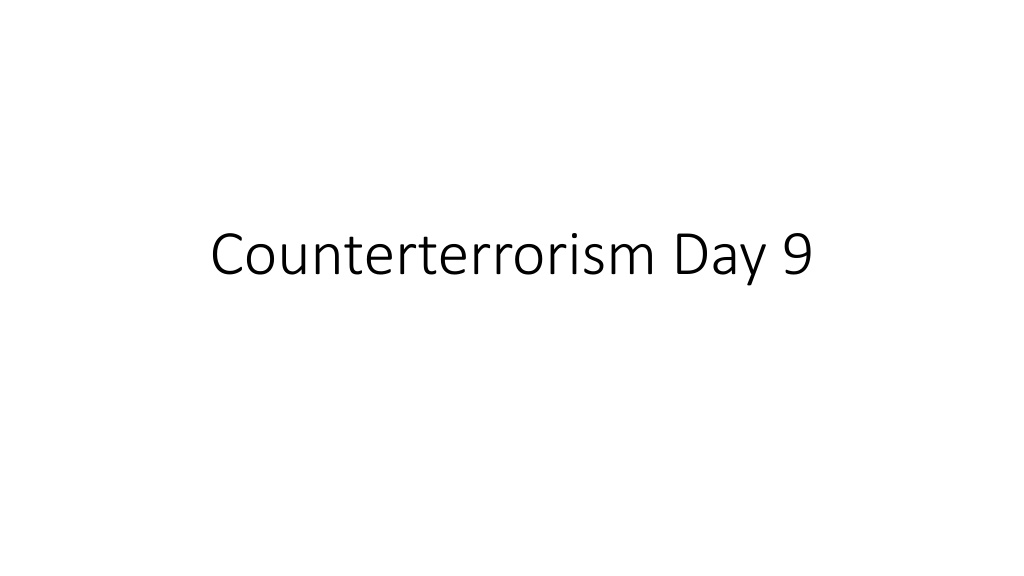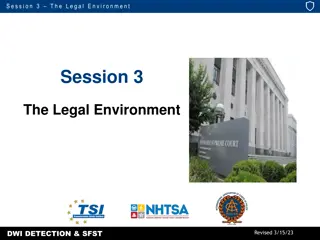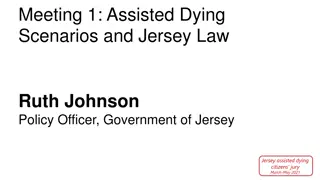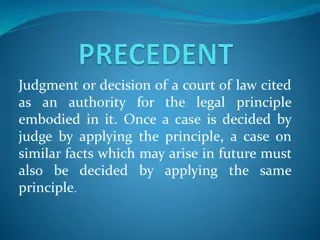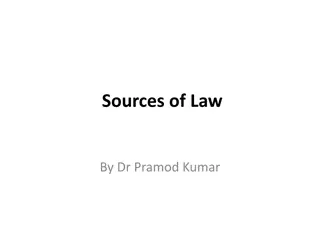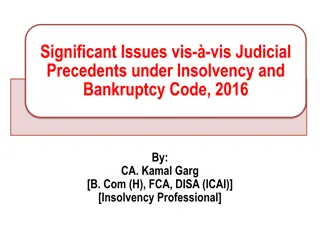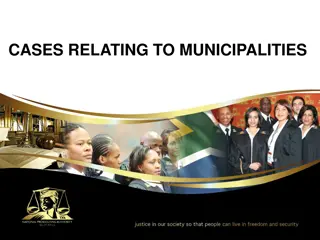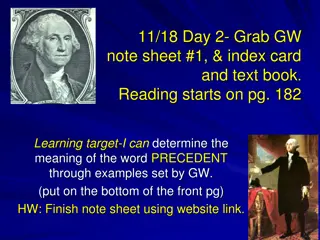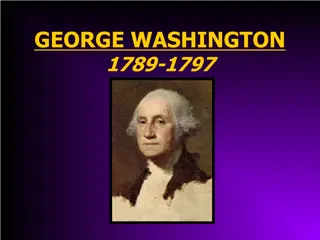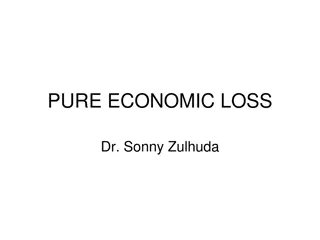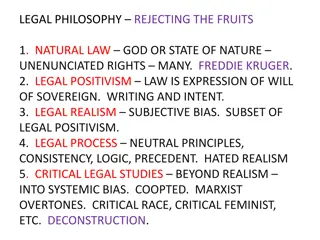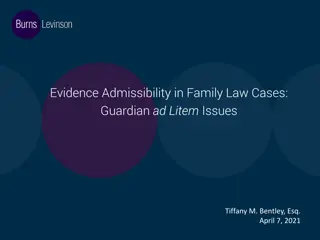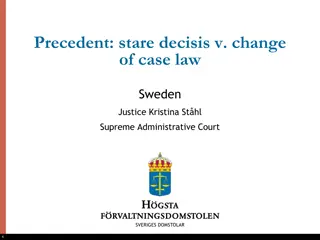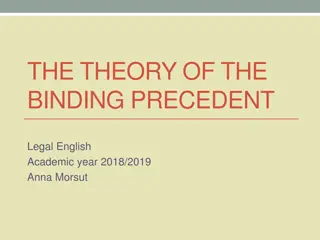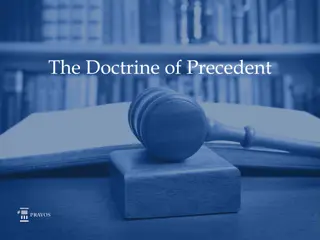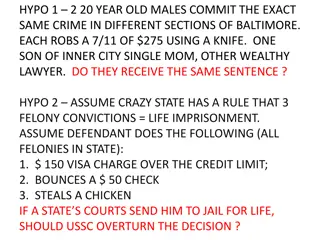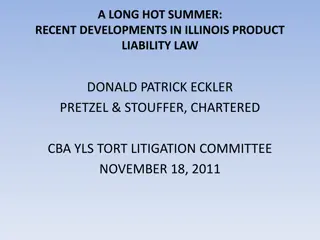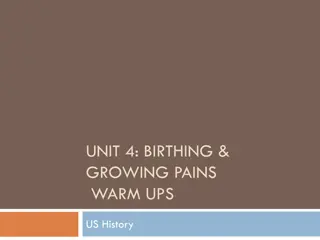Legal Precedents in Bivens Cases
Court cases such as Hernandez v. US, Totten v. US, United States v. Reynolds, and El-Masri v. US have shaped the scope of Bivens claims, addressing state secrets, government privileges, and procedural rights. These cases highlight the complexities of suing the government, especially in matters involving secret information and cross-border incidents.
Download Presentation

Please find below an Image/Link to download the presentation.
The content on the website is provided AS IS for your information and personal use only. It may not be sold, licensed, or shared on other websites without obtaining consent from the author.If you encounter any issues during the download, it is possible that the publisher has removed the file from their server.
You are allowed to download the files provided on this website for personal or commercial use, subject to the condition that they are used lawfully. All files are the property of their respective owners.
The content on the website is provided AS IS for your information and personal use only. It may not be sold, licensed, or shared on other websites without obtaining consent from the author.
E N D
Presentation Transcript
Hernandez Case Cross boarder shooting Customs agent on US border shoots a teen on the Mexican side Not FTCA Arguably military, and outside the US Bivens Does the deceased s family have standing? This is within the existing Bivens precedent, or does the court need to extend Bivens? Has the court locked Bivens into the existing precedent?
Totten v. US (1857) This was a contract claim for secret work for the government. Government said the details of the work was a state secret. Court does not look critically at the claim, but relies on the government. Court dismisses the case, establishing that the risk falls on the party who needs the information for his/her prima facia case.
United States v. Reynolds, 345 U.S. 1 (1953) United States v. Reynolds, 345 U.S. 1 (1953) FTCA claim by survivors of civilian observers on military test flight. Government will not release the full investigation of the crash, claiming state secret privilege. Court does not look critically at the report and accepts claim Plaintiffs claims are dismissed, extending Totten to FTCA claims The report is later declassified and found to contain no critical secret information, in conflict with the representations to the court.
El El- -Masri Masri v. United States, 479 F.3d 296 (2007) v. United States, 479 F.3d 296 (2007) This is a claim against the government by a non-citizen for his treatment outside the US. It is brought under the Alien Tort Claims Act and Bivens Subsequent cases raise questions about whether law can be used for this type of claim Bivens requires suing a specific, named defendant, so plaintiff must get discovery to go forward. Government says this is state secret/classified information and will not produce it.
What is the Test for State Secrets?
Have the Procedural Rights Been Met? At the outset, the court must ascertain that the procedural requirements for invoking the state secrets privilege have been satisfied. Is it actually still secret? Has the government treated it as secret? Is it otherwise in the public domain? A government employee can still be prosecuted for mishandling information that is otherwise in the public domain. It is not a state secret, however.
Is it Really a Secret? The court must sustain a claim of privilege when it is satisfied, from all the circumstances of the case, that there is a reasonable danger that compulsion of the evidence will expose . . . matters which, in the interest of national security, should not be divulged. There are still fights about whether the court is allowed to see the evidence in camera to review it.
What Happens to the Case without the Information? Finally, if the subject information is determined to be privileged, the ultimate question to be resolved is how the matter should proceed in light of the successful privilege claim. There is no balancing test: If this standard is met, the evidence is absolutely privileged, irrespective of the plaintiffs countervailing need for it.
What if the plaintiff cannot prove the elements of the prima facie case without the evidence? First, if the plaintiff cannot prove the prima facie elements of her claim with nonprivileged evidence, then the court may dismiss her claim as it would with any plaintiff who cannot prove her case.
What if a defendant cannot put on a defense without the evidence? Second, if the privilege deprives the defendant of information that would otherwise give the defendant a valid defense to the claim, then the court may grant summary judgment to the defendant.
What if it it might be possible to litigate around the excluded information? Third, and relevant here, even if the claims and defenses might theoretically be established without relying on privileged evidence, it may be impossible to proceed with the litigation because privileged evidence being inseparable from nonprivileged information that will be necessary to the claims or defenses litigating the case to a judgment on the merits would present an unacceptable risk of disclosing state secrets. . . .
Executive Privilege v. State Secret Executive privilege is focused on the President s need to be able to get confidential advice from his advisors. This is only constitutional to the extent that it can be argued that it is necessary for separation of powers. It is not well founded in common law. State secret privilege is well founded in common law and the international law of nations. Executive privilege is strongest when the information also touches on a state secret.
